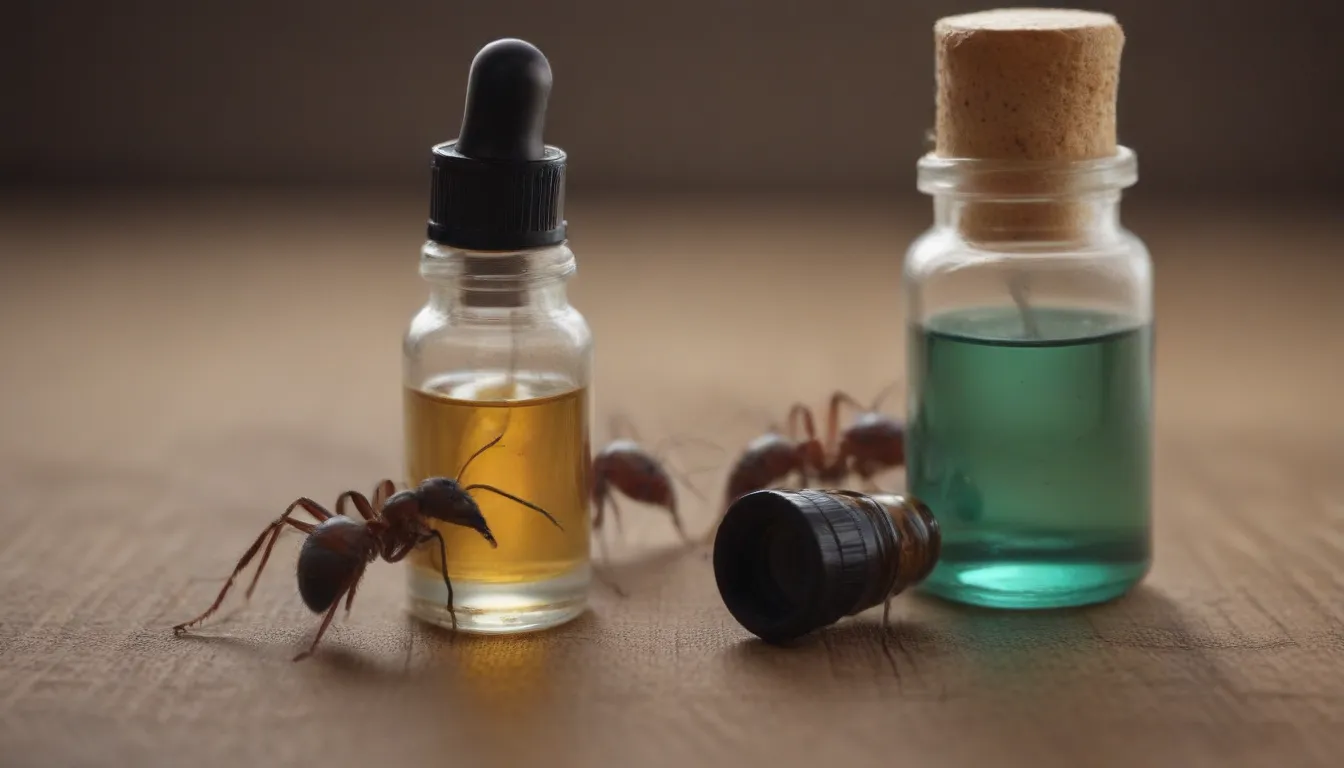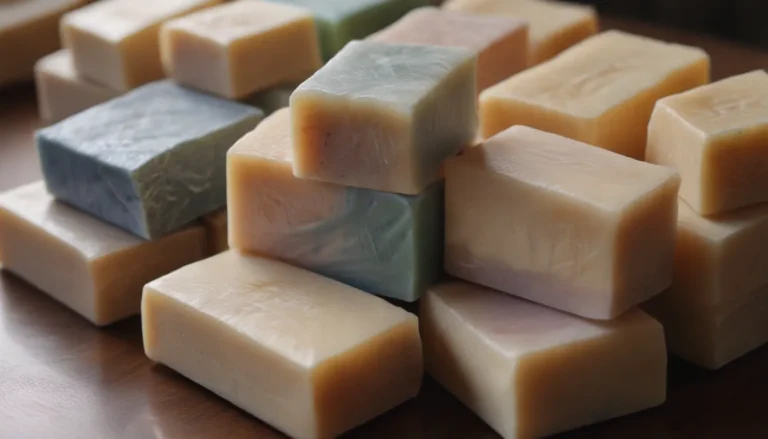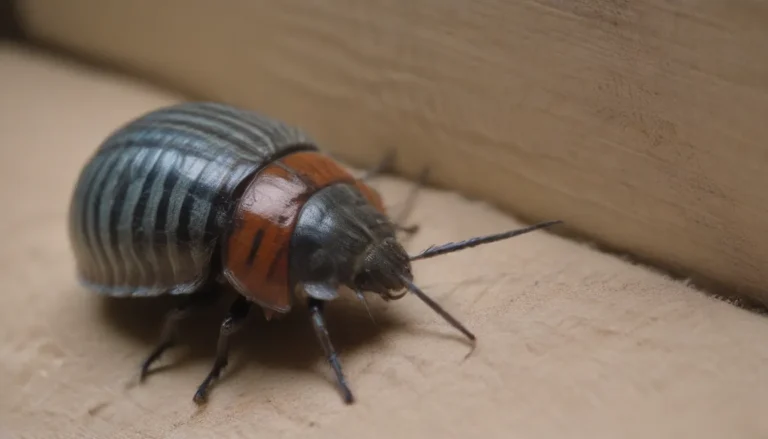The Comprehensive Guide to Using Essential Oils to Keep Ants at Bay

Ants – tiny creatures that can quickly become a big nuisance in your home. They invade your space, ruin your food, and just generally make themselves unwelcome guests. But before you reach for harsh chemicals and bug sprays, consider a more natural approach to keeping ants away – essential oils.
Essential oils are not only a safe and effective way to repel ants, but they also have the added benefit of making your home smell delightful. From peppermint to tea tree, these oils can create a barrier between you and those pesky six-legged insects. Harnessing the power of nature, you can keep ants at bay without exposing yourself and your family to harmful chemicals.
So, if you’re ready to take a more natural approach to pest control, read on for a comprehensive guide to using essential oils to repel ants. Let’s dive into the world of aromatherapy and insect repellent all in one!
Why Use Essential Oils for Ant Prevention?
Ant infestations can be a headache to deal with, but using essential oils as a preventive measure can make the process easier and safer for you and your family. Here are a few reasons why essential oils are a great option for repelling ants:
- Natural: Essential oils are derived from plants and are free from harsh chemicals, making them a safe and eco-friendly alternative to traditional insect repellents.
- Effective: Many essential oils have insect-repellent properties that can effectively deter ants and other pests from entering your home.
- Aromatic: Essential oils not only repel ants but also leave your home smelling fresh and inviting.
- Versatile: Essential oils can be used in various ways, such as in sprays, diffusers, or even added to cleaning products.
14 Essential Oils for Repelling Ants
Here are 14 essential oils that are known for their ant-repelling properties:
Peppermint Oil
Peppermint oil is a popular choice for repelling ants due to its strong minty scent. It not only repels ants but also works against rodents and other insects. Just a few drops of peppermint oil can create a barrier that ants will steer clear of.
Cedarwood Oil
The strong scent of cedarwood oil can disorient ants, making them look for alternative routes into your home. It’s especially effective against fire ants, making it a valuable option for keeping your space ant-free.
Cinnamon Oil
While cinnamon oil may remind you of holiday treats, ants find its spicy scent overwhelming. In addition to repelling ants, cinnamon oil can also be lethal to them, making it a potent ant repellent.
Citronella Oil
Known for its ability to ward off mosquitos, citronella oil is also effective against ants. Not only does it repel ants due to its smell, but it can also eliminate them upon contact.
Clove Oil
Clove oil contains eugenol, an effective ant repellent that can also be toxic to ants. Its warm and spicy aroma makes it a great choice for keeping ants at bay.
Eucalyptus Oil
The serene scent of eucalyptus can confuse ants and mask the smell of food, deterring them from entering your space. Its strong fragrance is a no-go zone for ants seeking shelter.
Lavender Oil
Lavender oil, known for its calming properties for humans, has the opposite effect on ants. Its floral scent repels ants and prevents them from infiltrating your home.
Lemon Oil
The strong scent of lemon oil can throw ants off their tracks, disrupting their trails and deterring them from entering your kitchen. It’s a zesty option for keeping ants at bay.
Lemongrass Oil
Similar to lemon oil, lemongrass oil’s citrusy scent distracts ants and prevents them from reaching their food source. It’s an effective option for creating an ant-free environment.
Orange Oil
Ants find the sweet citrus scent of orange oil repulsive, making it an excellent choice for repelling them. This oil can even suffocate ants, further deterring them from invading your space.
Patchouli Oil
Patchouli oil is a powerful ant repellent, particularly effective against black ants. Its properties make it a go-to option for keeping ants, flies, bed bugs, and other insects at bay.
Tea Tree Oil
Tea tree oil’s strong scent drives ants away from treated areas, creating a protective barrier against ant invasions. It’s a natural and effective way to keep ants out of your home.
Thyme Oil
While commonly used in cooking, thyme oil also works wonders as an ant repellent. Its fragrant aroma can deter ants and other pests, making it a valuable addition to your pest control arsenal.
Spearmint Oil
If you don’t have peppermint oil on hand, spearmint oil is a suitable alternative for repelling ants. Its strong scent instantly repels ants and ensures they stay away from your living space.
Warning: Essential Oils and Pets
While essential oils can be effective in repelling ants, some oils can be toxic to pets. Exercise caution when using essential oils if you have dogs or cats at home. Essential oils such as lavender, cinnamon, citrus, and tea tree should be used sparingly or avoided in areas accessible to pets to prevent any potential harm.
How to Use Essential Oils as Ant Repellents
To create a simple spray for repelling ants using essential oils, follow these steps:
- Combine 30-40 drops of the essential oil of your choice with 30 drops of alcohol and 60 ml of distilled water.
- Shake the mixture well in a spray bottle to ensure the ingredients are thoroughly mixed.
- Use the spray along entry points, windowsills, and other areas where ants may enter your home.
- Reapply as needed to maintain the repellent properties of the essential oils.
Remember, you can mix and match different essential oils to create a custom blend that targets ants effectively. For example, combining peppermint, clove, and a citrus oil can create a potent ant-repelling spray that keeps ants at bay.
Additional Resources
If you’re interested in learning more about the science behind using essential oils for pest control, here are some studies and resources to explore:
- Evaluation of Four Plant Extract Repellents for Management of the European Red Ant Myrmica rubra (Hymenoptera: Formicidae)
- Bioactivity of cedarwood oil and cedrol against arthropod pests
- Ants and Spices: The Potential of Spices to Repel Pest Ants (Formicidae)
- Natural Repellents as a Method of Preventing Ant Damage to Microirrigation Systems
- Deterrency and Toxicity of Essential Oils to Argentine and Red Imported Fire Ants (Hymenoptera: Formicidae)
Exploring these resources can provide you with a deeper understanding of how essential oils work as insect repellents and their effectiveness in managing pest populations.
Conclusion
When it comes to repelling ants naturally, essential oils offer a safe, effective, and aromatic solution. By harnessing the power of nature, you can create a barrier that keeps ants at bay while filling your home with delightful scents. Whether you prefer the fresh minty aroma of peppermint or the warm spice of clove, there’s an essential oil to suit your preferences and pest control needs.
So, the next time you spot an ant marching across your kitchen counter, reach for a bottle of essential oil instead of harsh chemicals. With a few simple sprays, you can protect your home from unwanted insect invaders and enjoy a fragrant, ant-free environment. Thank you for reading, and happy oiling!





